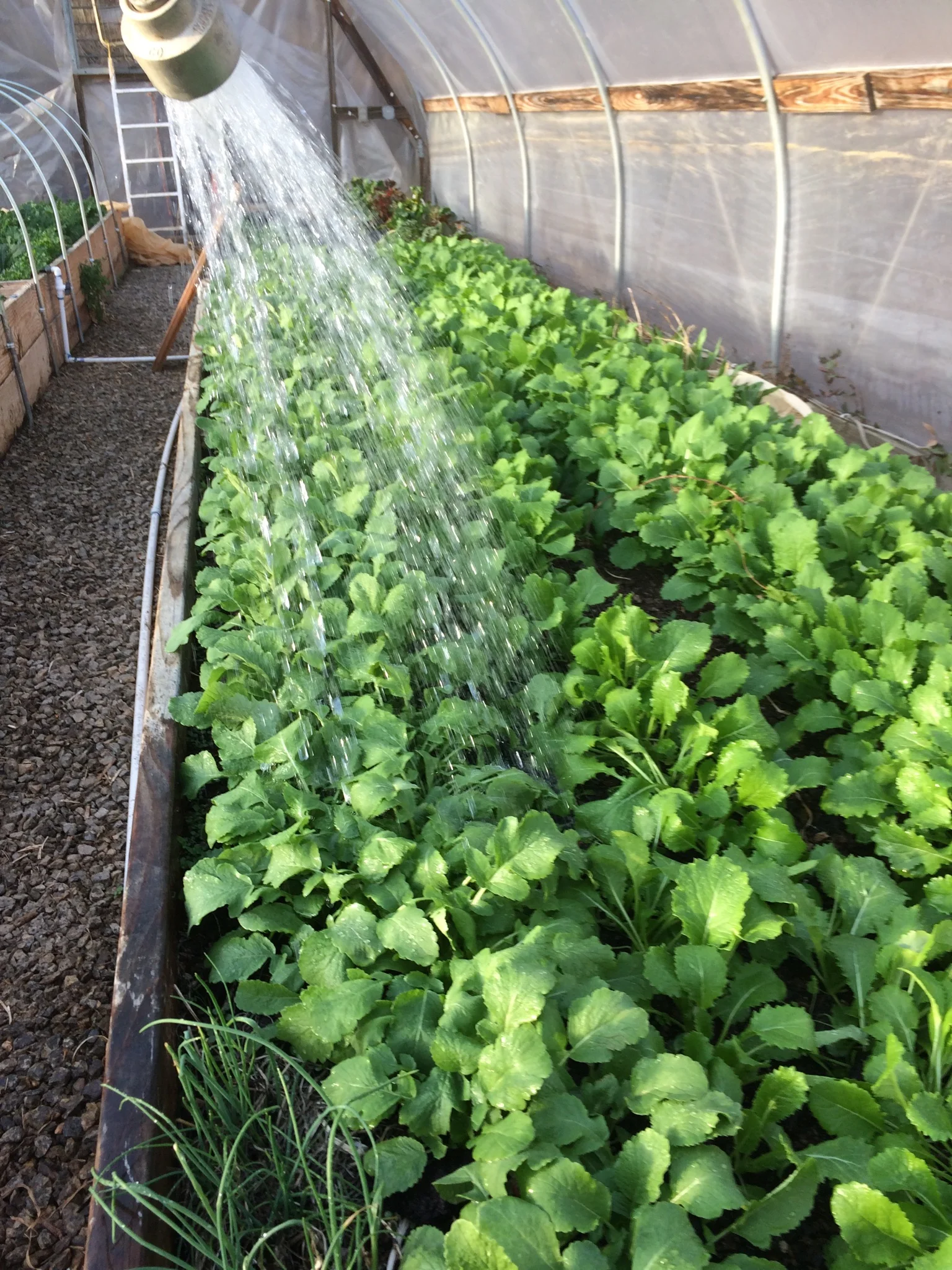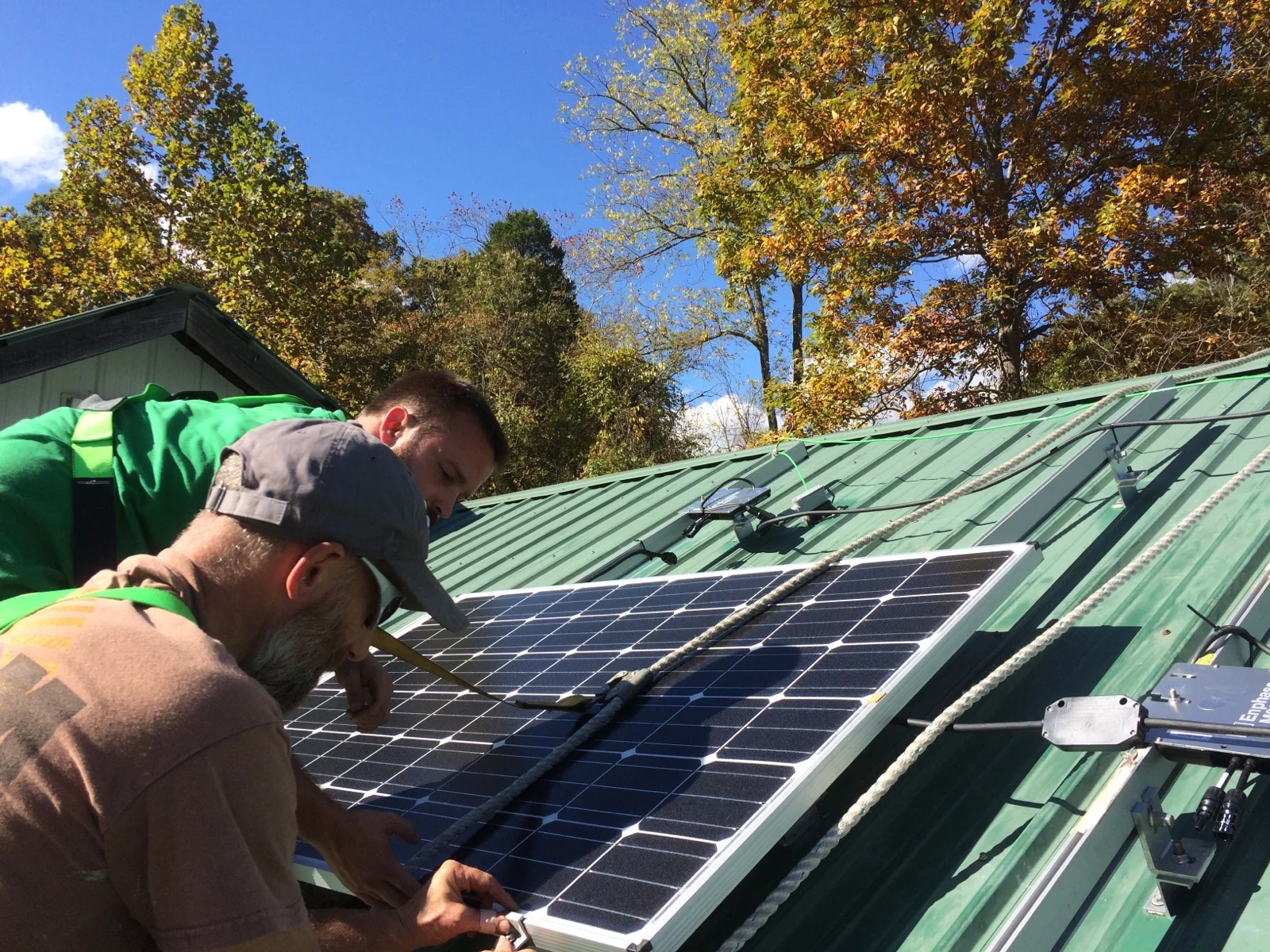In modern agriculture, it is necessary for greenhouse operators to keep costs of various expenses low to run a successful farming operation. One of the biggest costs that many small farms struggle with are energy costs. Many farms use propane heaters inside their greenhouses which can become costly. To avoid high energy bills every month, some farms are now transitioning to natural energy sources like sun, water, and wind.
Paul and Claudine Cremer, owners and operators of Meadow Cove Farm in Weaverville, NC, turned their eyes to the skies when searching for a better way to not only heat their greenhouse, but also power several other activities around the farm. “We have been believers in sustainable agriculture for many years now,” said Claudine. “We were already solar users at our home before deciding to make that our main source of energy for our farm.” In the fall of 2016, the Cremers received a $6,000 TVA Energy for Farms Grant from Southwestern NC RC&D Council to install a solar PV system for use on their farm. “This new system has helped us so much in our starter greenhouse,” said Paul. “We have noticed a huge difference in our spring seedlings. We have been able to keep so many more plants alive through the winter now because of the solar heat going to the heat mats underneath the seedlings.”
In 2016, Meadow Cove Farm was one of two chosen farms in Buncombe County to do an organic tomato trial through North Carolina State University and the Mountain Research Station. During this trial, the Cremers experienced what is called herbicide carryover. Herbicide carryover happens when compost is applied to soil that contains a noxious chemical. In their case, this compost had been purchased from a grass-fed beef operation. This beef operation had experienced a shortage of hay and were forced to buy hay from their local feed store. Little did they know that the hay had been sprayed with an unknown chemical then fed to their cattle. This toxin remained in the manure which was composted and then spread on the Cremers trial tomato plants. This was the demise of all the trial plants and was heartbreaking for them. “We just want every small farmer who practices organics to know about this,” said Paul. “This was a terrible experience for not only the trial, but also my wife and I. We had no idea that herbicide carryover even existed, but now we want to spread the word.”
The Cremers have been farming on their property for over ten years together. On the farm, they grow a wide variety of seasonal vegetables, berries, shiitake mushrooms and cut flowers. In addition to crop production, Paul and Claudine also keep several hives of honey bees and raise goats for brush control on the farm. The Cremers are a part of the Appalachian Sustainable Agriculture Project (ASAP) and sell to various markets and local restaurants.




